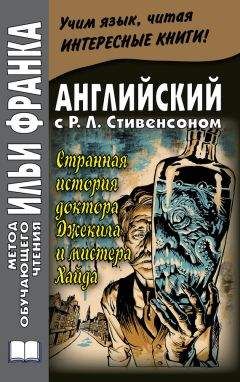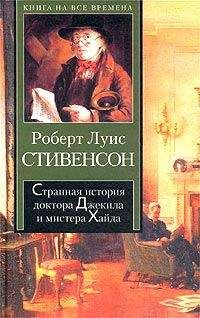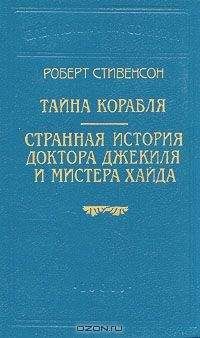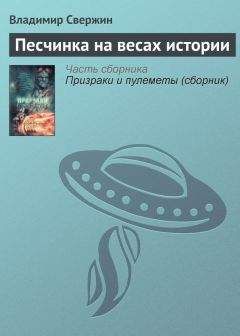Robert Stevenson - Английский язык с Р. Л. Стивенсоном. Странная история доктора Джекила и мистера Хайда
constellation ["kOnstI'leIS(q)n] vigilance ['vIdZIlqns] corridor ['kOrIdO:]
I crossed the yard, wherein the constellations looked down upon me, I could have thought, with wonder, the first creature of that sort that their unsleeping vigilance had yet disclosed to them; I stole through the corridors a stranger in my own house; and coming to my room, I saw for the first time the appearance of Edward Hyde.
I must here speak by theory alone (здесь я должен высказывать только предположения; theory — теория; догадка), saying not that which I know (говоря не о том, что я точно знаю), but that which I suppose to be most probable (а о том, что, как я предполагаю, было наиболее вероятным). The evil side of my nature (злая/порочная сторона моей натуры), to which I had now transferred the stamping efficacy (которой я теперь передал способность /создавать самостоятельную оболочку/; stamping — штамповка, чеканка, выдавливание; to stamp — штамповать, штемпелевать, ставить печать; клеймить, чеканить, отпечатывать, оттискивать; efficacy — эффективность, сила; действенность), was less robust and less developed (была менее сильной и менее развитой; robust — крепкий, здоровый; сильный; твердый) than the good which I had just deposed (чем добрая /сторона натуры/, которую я только что низверг; to depose — низложить, свергнуть; сместить /с должности/). Again, in the course of my life (к тому же, за всю свою жизнь; course — курс, направление; ход, течение), which had been, after all, nine-tenths a life of effort (которая, в конце концов, состояла на девять десятых из труда; effort — усилие, напряжение; борьба/зачто-либо/), virtue and control (добродетели и ограничений; control — управление, руководство; сдержанность), it had been much less exercised (зло гораздо меньше было упражняемо/развиваемо) and much less exhausted (и гораздо меньше было истощено).
efficacy ['efIkqsI] robust [rq'bAst, 'rqubAst] exhausted [Ig'zO:stId]
I must here speak by theory alone, saying not that which I know, but that which I suppose to be most probable. The evil side of my nature, to which I had now transferred the stamping efficacy, was less robust and less developed than the good which I had just deposed. Again, in the course of my life, which had been, after all, nine-tenths a life of effort, virtue and control, it had been much less exercised and much less exhausted.
And hence, as I think, it came about (вот как, по-моему мнению, случилось так; hence — отсюда /о происхождении/; поэтому, следовательно) that Edward Hyde was so much smaller, slighter, and younger than Henry Jekyll (что Эдвард Хайд был гораздо ниже ростом, более худым и более молодым, чем Генри Джекил; slight — стройный, тонкий; худой, худощавый). Even as good shone upon the countenance of one (так же, как добро освещало лицо одного), evil was written broadly and plainly on the face of the other (так же зло было написано прямо и явно на лице другого; broadly — широко; прямо, откровенно). Evil besides (кроме того, зло) (which I must still believe to be the lethal side of man (которое, как я все еще верю, остается смертоносной = губительной стороной /натуры/ человека)) had left on that body an imprint of deformity and decay (оставило на том теле отпечаток уродства и разложения). And yet when I looked upon that ugly idol in the glass (и все же, когда я взглянул на этот уродливый = безобразного призрак в зеркале; glass — стекло; зеркало; idol — идол, божество; призрак, иллюзия), I was conscious of no repugnance (я не ощутил отвращения; conscious — сознательный, осознанный; сознающий; ощущающий), rather of a leap of welcome (а скорее внезапную радость /от встречи/; leap — прыжок; резкоеизменение; welcome — прием/гостя/; гостеприимство).
lethal ['li:T(q)l] deformity [dI'fO:mItI] idol [aId(q)l] repugnance [rI'pAgnqns]
And hence, as I think, it came about that Edward Hyde was so much smaller, slighter, and younger than Henry Jekyll. Even as good shone upon the countenance of one, evil was written broadly and plainly on the face of the other. Evil besides (which I must still believe to be the lethal side of man) had left on that body an imprint of deformity and decay. And yet when I looked upon that ugly idol in the glass, I was conscious of no repugnance, rather of a leap of welcome.
This, too, was myself (это тоже был я). It seemed natural and human (образ в зеркале казался мне естественным и человеческим). In my eyes it bore a livelier image of the spirit (на мой взгляд он нес на себе более живой отпечаток: «образ» духа), it seemed more express and single (казался более выраженным и единым = гармоничным; express— ясный, недвусмысленный, точно выраженный), than the imperfect and divided countenance (чем та несовершенная и разделенная на части = двойственная внешность) I had been hitherto accustomed to call mine (которую я до этого времени привык называть своей). And in so far I was doubtless right (и, что касается этого = этих рассуждений, я был, без сомнения, прав; insofar/as/ — в этом смысле, в этом отношении: «настолько далеко»). I have observed that when I wore the semblance of Edward Hyde (я обратил внимание = я замечал, что когда я был в обличии Эдварда Хайда; towear— носить /чаще об одежде/), none could come near me at first (никто не мог поначалу приблизится ко мне) without a visible misgiving of the flesh (без видимого/очевидного физического опасения = без чувства физической гадливости; flesh— плоть). This, as I take it (это, как я понимаю), was because all human beings, as we meet them (было от того, что все человеческие существа, такие, какими мы встречаем их), are comingled out of good and evil (представляют собой смесь добра и зла; tocommingle/comingle— смешивать/ся/, соединять/ся/): and Edward Hyde alone, in the ranks of mankind, was pure evil (и только Эдвард Хайд, из всего человечества, представлял собой чистое зло; rank— ряд).
human ['hju:mqn] doubtless ['dautlIs] visible ['vIzqb(q)l] being ['bi:IN]
This, too, was myself. It seemed natural and human. In my eyes it bore a livelier image of the spirit, it seemed more express and single, than the imperfect and divided countenance I had been hitherto accustomed to call mine. And in so far I was doubtless right. I have observed that when I wore the semblance of Edward Hyde, none could come near me at first without a visible misgiving of the flesh. This, as I take it, was because all human beings, as we meet them, are comingled out of good and evil: and Edward Hyde alone, in the ranks of mankind, was pure evil.
I lingered but a moment at the mirror (я помедлил всего лишь мгновение перед зеркалом): the second conclusive experiment had yet to be attempted (мне все еще предстоял второй, решающий эксперимент); it yet remained to be seen (оставалось еще увидеть = проверить) if I had lost my identity beyond redemption (не потерял ли я свою личность окончательно: «за пределы возвращения = так, что не вернуть»; redemption — выкуп; возвращение/себя/, получениеобратно) and must flee before daylight from a house that was no longer mine (и не придется ли мне бежать до рассвета из дома, который уже не был моим); and hurrying back to my cabinet (и, поспешив назад в свой кабинет), I once more prepared and drank the cup (я еще раз приготовил и выпил чашу /настойки/), once more suffered the pangs of dissolution (еще раз перенес муки разрушения = преображения; dissolution — растворение; разрушение, распад), and came to myself once more with the character, the stature, and the face of Henry Jekyll (и еще раз пришел в себя — с характером, ростом/телосложением и лицом Генри Джекила; stature — рост; телосложение; стан, фигура).
redemption [rI'dempS(q)n] dissolution ["dIsq'lu:S(q)n] stature ['stxtSq]
I lingered but a moment at the mirror: the second conclusive experiment had yet to be attempted; it yet remained to be seen if I had lost my identity beyond redemption and must flee before daylight from a house that was no longer mine; and hurrying back to my cabinet, I once more prepared and drank the cup, once more suffered the pangs of dissolution, and came to myself once more with the character, the stature, and the face of Henry Jekyll.
That night I had come to the fatal cross roads (в ту ночь я пришел к роковому распутью; cross road — перекресток; распутье, переломныймомент). Had I approached my discovery in a more noble spirit (подойди я к своему открытию в более благородном духовном состоянии = если бы к моему открытию меня привели более высокие побуждения), had I risked the experiment while under the empire of generous or pious aspirations (если бы я отважился на этот эксперимент, находясь под властью великодушных и добродетельных стремлений; empire — империя; господство, владычество), all must have been otherwise (все должно было бы быть = произойти по-другому), and from these agonies of death and birth (и из всех этих мук смерти и рождения) I had come forth an angel instead of a fiend (я вышел бы = воссталбы ангелом, а не дьяволом; instead of — вместо/кого-либо, чего-либо/). The drug had no discriminating action (это средство не обладало никаким избирательным действием; discriminating— отличительный; умеющий различать, селективный; todiscriminate— различать, отличать, проводить различие, дифференцировать, выделять); it was neither diabolical nor divine (оно не было ни дьявольским, ни божественным); it but shook the doors of the prison-house of my disposition (оно лишь сотрясло двери = отперло двери темницы моих склонностей; disposition— характер; склонность); and, like the captives of Philippi (и, подобно пленникам в Филиппах; Philippi— город в Македонии; в 42 году до н.э. Марк Антоний и Октавий разгромили Брута и Кассия; пленники в Филиппах, бывшие сторонники заговорщиков, были освобождены великодушными победителями, а не казнены, как предатели), that which stood within ran forth (тот, кто был: «стоял» внутри, вырвался наружу: «выбежал вперед»).




